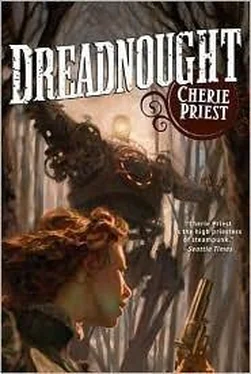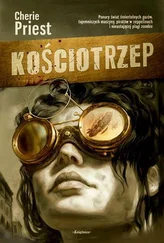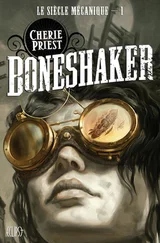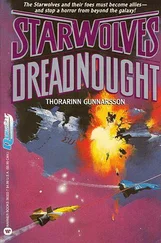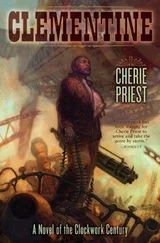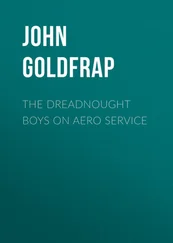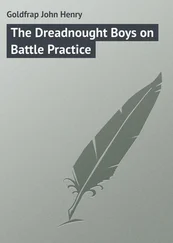Cherie Priest - Dreadnought
Здесь есть возможность читать онлайн «Cherie Priest - Dreadnought» весь текст электронной книги совершенно бесплатно (целиком полную версию без сокращений). В некоторых случаях можно слушать аудио, скачать через торрент в формате fb2 и присутствует краткое содержание. Год выпуска: 2010, ISBN: 2010, Жанр: Фантастика и фэнтези, на английском языке. Описание произведения, (предисловие) а так же отзывы посетителей доступны на портале библиотеки ЛибКат.
- Название:Dreadnought
- Автор:
- Жанр:
- Год:2010
- ISBN:978-0-7653-2578-5
- Рейтинг книги:3 / 5. Голосов: 1
-
Избранное:Добавить в избранное
- Отзывы:
-
Ваша оценка:
- 60
- 1
- 2
- 3
- 4
- 5
Dreadnought: краткое содержание, описание и аннотация
Предлагаем к чтению аннотацию, описание, краткое содержание или предисловие (зависит от того, что написал сам автор книги «Dreadnought»). Если вы не нашли необходимую информацию о книге — напишите в комментариях, мы постараемся отыскать её.
Dreadnought — читать онлайн бесплатно полную книгу (весь текст) целиком
Ниже представлен текст книги, разбитый по страницам. Система сохранения места последней прочитанной страницы, позволяет с удобством читать онлайн бесплатно книгу «Dreadnought», без необходимости каждый раз заново искать на чём Вы остановились. Поставьте закладку, и сможете в любой момент перейти на страницу, на которой закончили чтение.
Интервал:
Закладка:
Mercy didn’t think to wonder what had happened to the doctor until someone mentioned that he’d debarked in Denver, same as almost everyone else. This peeved Mercy greatly. No military regiment, legion, group, or gathering ever went anyplace near danger without a medical professional in their midst, or at least that’s how it ought to go. And the truth was, even if Mercy had been a proper doctor with a proper doctor’s training and experience, she had only her small satchel filled with basic equipment at her disposal. Anything much more serious than a broken bone or a bad cut could only be managed, not treated.
She felt alone, in the middle of everybody-even the other civilians who hunkered in the center passenger car and read books or played cards or sipped out of flasks to pass the time. She was the only medical professional of any sort on board, which meant that every stubbed toe, every rheumy eye, and every cough gravitated her way for analysis and treatment. It was the nature of the beast, she supposed, but even these small ailments did little to punctuate the wary boredom.
No one ever really nodded off anymore.
No one ever really paid full attention to the books, or the cards, or the vest-hidden flasks; no one enjoyed the passing scenery as the black-and-white mountains scrolled past and the freezing waterfalls hung along the dynamited cliffs like icicles off a gutter. No one listened with both ears to any of the chatter, or the rolling, pattering passage of the train. Everyone kept one ear peeled for the sound of another whistle splitting the icy air.
And finally, on the fourth day, they heard it.
It squealed high and sharp.
The whistle blew again, and the echo bounded around between the boulders and the tiny glaciers that slipped with monumental slowness down the perilous slopes.
And everyone seized up tight, hearts clenching and unclenching. One by one, everyone rose and went to the south side of the train, from whence the noise had come. And soon, all the faces on board-except perhaps the determined and devilish Malverne Purdue, and maybe the conductor, up front and invisible-were pressed up against windows that could not have been colder if they’d been sheets of ice instead of glass. Everyone breathed freezing fog against the panes, wiping it away with gloved hands or jacketed elbows. Everyone strained to hear it again, hoping and praying the first shriek had been a mistake, or had only been a friendly train, passing on some other track on the approach to the pass at Provo.
Norene Butterfield groped at her niece’s arm and asked, “How far are we from the pass?”
And Miss Clay said, without taking her eyes off the smudged, chilled window, “Not far. We can’t be far.”
“And once we get to the pass, we’re safe, aren’t we?”
But Miss Clay did not answer that part. She didn’t exchange the knowing glance Mercy shot her either, even though both of them knew good and well that the pass was a death trap if both trains were penned within it simultaneously. Only on the far side would they find anything like safety.
Mercy climbed down from the seat upon which she’d been kneeling, and whirled into the aisle. Horatio Korman had been hanging about in the third passenger car, and the captain had been hanging about in the first one-or else, in the car with the gold, from which she’d been specifically forbidden from entering again unless directly ordered otherwise. With this in mind, she turned to the right and headed for the rearmost door, opening the latch and dousing the steam-warmed car with a torrent of frigid wind. She shut the door as fast as possible, tugging her cloak up around her head and pulling it tight over her ears, trying to filter out the worst of the blizzard as she felt about for the rail and the platform space over the coupler. She moved to the next car easily, despite the temperature and the wind that felt strangely dry, as if it belonged someplace hellishly hot and not this winter place covered in snow.
In the third car, she found a sight similar to the one in the second, where she’d left Miss Clay and Mrs. Butterfield-except here, most of the faces pressed to the windows belonged to men in uniforms. Horatio Korman stood against the far wall alone, arms folded. He glanced up at Mercy when she came blasting in, accompanied by the weather, and he gave her a frown that told her to shut the door, already.
She did so and approached him, cheeks flushed from even that brief exposure, and hands shaking despite her gloves. She said, “Is it them, do you think?”
“Yeah, I think it is.”
“Can they catch us?” she asked for what must’ve been the hundredth time.
He sucked on his lower lip, or on the gobbet of tobacco he undoubtedly stored within it. Then he reached for a window, lowered it, and spit quickly before closing it again. His mustache ruffled and his hat pushed back by the wind, he shook his head slowly and said, “Not ‘can they?’ but ‘when will they?’ We’re less than five miles from the pass, and once we’re in, it’s cliff face straight up and down, on both sides of the rails-an expanse that runs maybe a quarter mile wide, with about twelve sets of tracks running through it.”
Mercy tried to imagine it: a frozen corridor like a tremendous wagon track in the snow, with no way up or out to the left or right, no way to back up and go around, and a race to get through to the other side.
He said, “If we’re lucky, they’ll only trail us. They can shoot at the train’s rear car all day-ain’t nobody inside there gonna give a shit. Or if we’re lucky another way, they’ll be stuck on some track far over to the south, far enough that they’ll be hard-pressed to do us too much damage, because they won’t be close enough, even if they manage to pull up alongside us.”
Pierce Tankersly turned away from his window and asked the ranger, “And what if we’re not lucky? What then, Texian? What will they do?”
“If we’re not lucky?” He adjusted his hat, bringing it back down low enough that he could’ve grazed it if he’d lifted his eyebrows in surprise. “They’ll overtake us, and muck up the tracks, just like they promised.” Tankersly gave him a quizzical look implying the soldier knew precious little about trains, so the ranger clarified. “If they blow the tracks up there, this train will go off the rails. Literally. Most of us’ll probably die on impact. Some of us might live to get shot, or freeze to death.”
The private said, “Then what are you standing over here for, man? They may be your allies on the map, but you’ll get killed same as us if they manage to undo the Dreadnought ! Take up a position-hell, go find the captain and see where he’d like an extra man.”
But Korman said, “No. I can’t do that. I won’t shoot at my own fellows, or fellows that might be mine. I wouldn’t do it even if I thought it’d make a lick of difference to whether or not they take this train. That just ain’t how it works, junior. And if the shoe were on the other foot, you’d probably treat the situation just the same.”
“It doesn’t matter what foot what shoe is on. I’d fight for my life, regardless!” the young man said.
The ranger replied, “Well, all right, maybe I’m wrong. But I’m not fighting for my life. There’s nothing I could do to slow down that train, and not much you could, unless you want to go up to our front cars and run those weapons she’s pulling down. Otherwise, best I could hope to do is keep them out of the passenger car. I don’t know how many of them are dumb enough to try to board us like a pirate ship moving at ninety miles an hour, but I’m willing to bet the answer is none too many.”
Closer, definitely closer, the whistle blew again-shaking the sheets of ice that hung off the mountain.
Читать дальшеИнтервал:
Закладка:
Похожие книги на «Dreadnought»
Представляем Вашему вниманию похожие книги на «Dreadnought» списком для выбора. Мы отобрали схожую по названию и смыслу литературу в надежде предоставить читателям больше вариантов отыскать новые, интересные, ещё непрочитанные произведения.
Обсуждение, отзывы о книге «Dreadnought» и просто собственные мнения читателей. Оставьте ваши комментарии, напишите, что Вы думаете о произведении, его смысле или главных героях. Укажите что конкретно понравилось, а что нет, и почему Вы так считаете.
